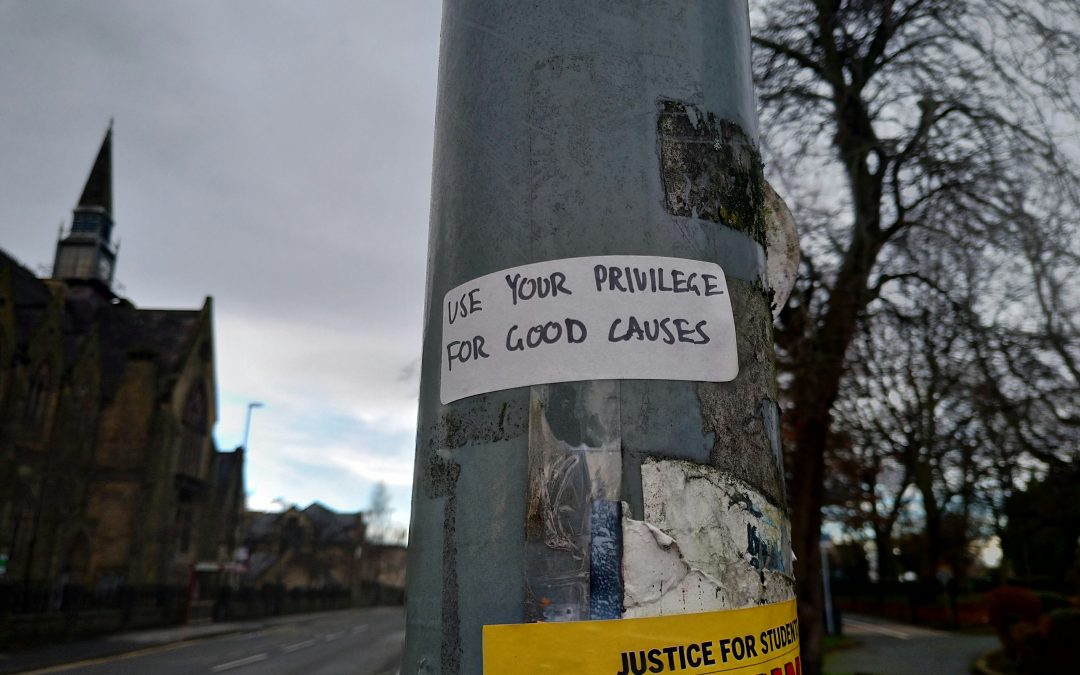Photo by Ava W. Burton on Unsplash
Privilege has gained significant attention in recent years, especially in the social aspect.
Privilege refers to certain people’s unearned advantages and benefits based on their social identities. It could be race, gender, or socioeconomic status. Moreover, acknowledging one’s privilege is an essential first step. Still, moving from awareness of privilege to action is equally important.
Privilege often operates in invisible ways, granting advantages to some while disparaging others. However, we need to know that privilege is never wrong. However, it becomes problematic when it perpetuates systemic inequalities. The frequent denial of one’s natural advantage in society might earn an ire from the community with less.
Being aware of social privilege through a compilation of different people’s stories might open us to the reality of our world today. That’s why Gloria Gipson Suggs wrote the book “Piece-A-Way Crossroads” to emphasize the impacts of social inequality and segregation during the early years of America’s history. Gloria’s also part of the Publisher’s Weekly – Person of the Year Issued on December 18, 2023. Readers can view page 63 of the magazine and find out more about her there and learn from her experiences.

An excellent way to drive social change is to examine the social structures that grant advantages to specific groups. Embracing this awareness can help begin dismantling the barriers that perpetuate inequality.
Why Do People Deny Their Social Privilege?
Despite being a glaring fact, people naturally tend to protect their self-image and maintain consistency in their beliefs. Acknowledging one’s privilege may challenge beliefs about fairness, meritocracy, or personal achievements. This dissonance between their self-perception and the reality of racial privilege can lead to denial as a defense mechanism.
Moreover, recognizing one’s privilege can evoke guilt, shame, or discomfort. Some individuals may fear being seen as complicit in systemic injustices. Or they could worry about potential consequences associated with acknowledging their privilege. Furthermore, denial can be an attempt to avoid these negative emotions because privilege operates invisibly for those who possess it. Suppose individuals have yet to be exposed to diverse perspectives or experiences different from their own. In that case, they may need more awareness of the advantages they enjoy. This lack of understanding can lead to denial due to limited exposure and empathy.
Societal narratives and norms can perpetuate the denial of privilege. Dominant cultural narratives often emphasize individualism and downplay systemic inequalities. This can create a social environment that discourages discussions about privilege and teaches denial as the default response. Using privilege as a platform is an ongoing process. We must Stay humble, acknowledge our limitations and mistakes, and be open to learning and growing to ensure our efforts are effective and respectful.
Using Privilege as A Platform to Drive Social Change
While recognizing one’s privilege is an important step, it must be accompanied by action to drive social change. Moving from privilege to action entails utilizing advantages to challenge and transform the systems perpetuating inequality. It requires actively listening to marginalized voices and educating ourselves about the experiences of others. Moreover, dismantling personal biases is just the beginning, as this journey requires humility, empathy, and a commitment to amplifying diverse voices.
Use your privilege to advocate for policy changes, raise awareness, and promote social justice causes. You can even write letters to elected officials, participate in peaceful protests, sign petitions, and support grassroots organizations working toward equity and justice. Use your access to resources, networks, and influence to help and uplift initiatives that drive social change.
One of the most potent ways to use our privilege is using various platforms to amplify marginalized voices. It could be through social media, public speaking engagements, or other channels. Individuals with privilege can drive social change by shedding light on important issues and actively engaging with communities. Using their influence to raise awareness, they can mobilize others to join the fight against systemic injustices.
Working Towards the Journey to A Just Society
Supporting marginalized communities is another crucial aspect of using privilege to drive social change. This can be achieved by actively seeking out and supporting organizations that work towards equity and social justice. Additionally, people can use their privilege to create opportunities for marginalized people to use their voices.
Furthermore, to effectively use privilege to drive social change, it is essential to challenge one’s own biases and assumptions. This requires us to examine our deeply ingrained beliefs and prejudices. This also means working on unlearning them, especially with how long we’ve had those biases. Even though it’s difficult, we need those uncomfortable conversations to happen, especially with our loved ones.
However, we shouldn’t be stuck in just talking amongst ourselves in the comforts of our own homes. Going out and being a part of our community can effectively drive social change. After all, interacting with them can give us insight into what can be done to make themselves heard.

